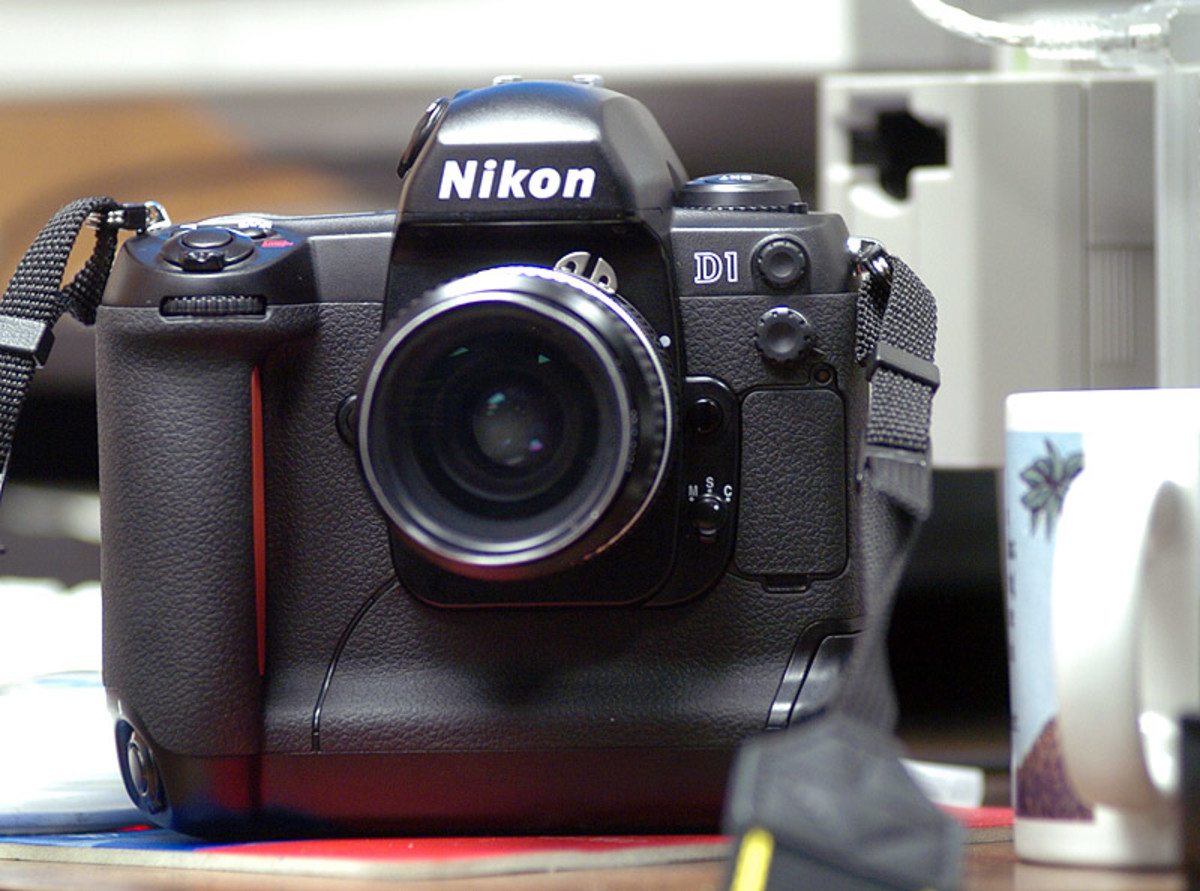Why You Should Not Overly Rely on Your Smartphone to Solve Problems

A smartphone is a cellular telephone with integrated features of a computer that are not found in other phones. These features include; operating system, web browsing and the ability to run software applications. The introduction of smartphones in the market has made it easier for every person to have access to them. The 21st century has seen the development of Smartphones, an increase in sales and distribution and the reduction of their prices, making them accessible to many people including teenagers. Among the features availed in the gadget include but are not limited to calculators, internet access, e-books, and applications that can help in problem-solving. This has raised dependency on the use of smartphones by many users. Therefore, there is a need to reevaluate how smartphones have affected our thinking capacity. The Smartphone era has changed the number of times we use critical thinking for actual problem-solving. In practice, the development of Smartphones has raised dependency tendencies by users in regard to problem-solving, thereby, inhibiting human ability to solve problems using brains rather than the gadget.
According to neuroscientist Susan Greenfield (2015), the brain is not an unchanging organ as we can imagine. It is shaped by what we do and experience in our daily activities. At the microcellular level, the network of nerves that make up part of the brain change in response to certain experiences and stimuli. Therefore, the brain is under the influence of modern technologies being developed including smartphones.
According to Miller (2012), Smartphone usage has tremendously increased in recent years. As such, it is anticipated that the gadget will ultimately influence society in a great way while leading to science fiction rather than scientific facts. The aspect of the extended mind is evident in the day-to-day activities of human beings. Clark and Chalmers (1998) define the extended cognitive system as an external system that acts to accomplish the function that would have otherwise been attained by the use of the internal cognitive processes within the brain (p88). A good example is writing down a number rather than maintaining the number in the internal memory. The properties of a smartphone provide a comprehensive way of externalization rather than facilitating internationalization.
Sparrow et al (2011) provide empirical support to the notion that the internet as an integral part of the smartphone, acts as an extension of the mind. According to a study carried out by the author, people think of and use the internet as a transactive or external memory and that one can easily explore deeply the internet as opposed to the use of one’s own cognitive ability to retrieve information, this basically limits the use of the effortful cognitive process in information search.
Another study carried out by Barr et al (2015) focused at establishing the association between smartphone use and the heuristic thinking. Participants in this study included Americans who were given the problems that have been used majorly in the previous research. The problems were designed to trigger an incorrect intuitive response that will be considered reflective of analytic cognitive process. They were also asked whether they own smartphones and the time they spent particularly on the search engines. As hypothesized, the result did show a difference between the Smartphone users and non-users on the measures of cognitive ability. Participants who reported a high level of smartphone usage scored low on the cognitive style measures used. Therefore, evidence is rife that low cognitive ability results from the excessive use of smartphones which offloads their analytic thinking. This subsequently leads to low ability to solve problems and coming up with decisions in a practical situation.
Research technologists have raised an alarm that the offloading of the mental functions to this electronic device is posing a threat to the functioning of the brain (McGraw University 2010). It is almost difficult for people to come up with solutions for small challenges due to overreliance on smartphones. According to the research by the McGraw University in 2010, Neuroscientist Veronique the lead researcher reports that depending on the Global Positioning System (GPS) to get to different locations inhibits the efficient functioning of the hippocampus; part of the brain that controls memory and spatial orientation. The researchers note that individuals who are used to getting around using their own mental capability have higher activity in the hippocampus, this means that their ability to think critically and manoeuvre through places is high.
The society cherishes the ability to think beyond the ordinary. Knowledge is considered reverent and innovation equals to progress in the present world. Critical thinking leads to new innovations and inventions. However, smartphones perform tasks that when done by human beings, advance the ability of critical thinking. For instance, the scientific calculators present in the smartphones makes one to avoid the manual way of mathematical calculation which is a core requirement towards critical and creative thinking.
People with Smartphones do not need to remember facts, even the ones they had earlier known about it since they can simply tap into Google and get the answers they need. Consequently, this has lowered the peoples' ability to think and brainstorm to retrieve long-forgotten information. According to Beatty and Gerace (2006), smartphones should be used in a way that it does not suppress the thinking ability of the brain (44). According to these authors, Smartphones should be used keep up to date with current affairs, and build social skills and not to replace the functions of the brain.
Nowadays, students use Smartphone instead of computers to access the internet. This has impelled the quality of data, discussion formats and all the information given from research. Equal access to smartphones among students in this era is increasing with the increase in Smartphone ownership that can be attributed to lowered prices. This ensures equal adoption of smartphones among them including using them to answer questions. Therefore, smartphones are now viewed as information-gathering tools for learners globally and very essential tools to any student that can be used for educational, economic and social information (Sarraf et al, 2015, 115). However, the excessive use of the gadget has made the students to be unable to tackle simple questions when the gadget has been withdrawn from them.
Ferguson et al, (2015) pose an important psychological science question on how access to such a powerful informational tool has influenced the thinking of students. In addition, that the internet influences student’s answers to questions in terms of giving answers that have already been given and their work is selecting the correct answer (p67). There is a tendency of low volunteering to answer questions and which lead to few correct answers in generals. There is a rise in the dependency of students on mobile technology for educational purposes but acquisition of this information is usually accompanied by a lot of destructions.
They depend entirely on content or information found on the internet and are at times not interested in the content found in books. This is because the level of interpretation of the information sought is minimal. Therefore, students’ willingness to answer questions is low because book sources provide them with all the information they require as well.
Smartphone results in decrease in the ability of students to think critically. The over-dependence of internet information causes the students to be less involved with serious thinking. They are unable to provide answers willingly without accessing the internet. This implies that smartphones influence the decisions of their mind in whether they know or do not know the answer hence translates to quality and quantity of the answers they will give. Dependency on the internet as made students and many professionals reliant on its information and support, people no longer have to use critical thinking to problem solve (Leu, et al. 2004, 66).
Parallel to the notion that smartphones supplant human thinking ability, a series of reasoning research has shown that humans are ‘cognitive misers’ (Kahneman, 2011, pg76). The term was adopted from the early information processing framework. Empirical evidence shows that people normally escape costly analytic in favor of effortless cognitive processing ability. Therefore, the miserly nature of humans in the use of cognitive ability leads to over-dependency on simple heuristics and mental shortcut in thinking and making decisions.
According to Sarwar and Soomro (2013), Smartphones can be used in a more resourceful way to boost the learning process of students. The authors suggest that students are able to acquire more knowledge from the e-books and the articles acquired from the internet and expand their learning experience (78). Based on the study conducted by Barakati (2011), Smartphone is not only a tool for communication but also used to improve the language skills of students if used in a proper manner. The language learning application helps in teachers in a classroom set up to learn the basic concept in language. This is supported by the fact that smartphones offer various websites and accounts that help students in comprehending the concepts in sciences, as well as boosting their morale in learning. Knowledge is acquired in a rather more relaxed way (Barakati, 2011, 54).
According to Rambitan (2015), answering questions and working out assignments becomes easier through the internet. On the corporate front, research can be conducted by organizations by sending out questionnaire links to be used by the respondents. The process is made easier and fast especially for the respondents who own the smartphones.
Assuming that students do not rely on the internet to answer questions, it is expected that the amount of knowledge that they have will affect the quality and quantity of information that they provide while answering questions in terms of metacognitive processes in their decisions. It therefore affects the level of information that they know and do not know. Therefore, the decisions they make when answering questions without relying on the internet will purely have their genuine knowledge and answer the questions on their own knowledge. Smart Phones will therefore be used to improve the quality of information and enable them to learn more on the content of the question. This shows that Smart Phones benefit students because they add more information to them hence an educational advantage.
Despite the existence of some benefits attributed to usage of Smartphone, the demerits far outweigh the merits. Various studies have pointed out that the use of such devices poses detrimental effects on cognition. In essence, despite some studies noting that the invention of Smart Phones has improved language skills, there is also sufficient evidence indicating that the gadgets have affected the idea of language learning. Smartphones according to the research future studies should be done to determine the extent to which they affect the cognitive thinking mechanism.
Gheytasi et al (2015) observes that the use of smartphone affects reading and comprehension among students. The authors conducted a study was done on Iranian students and the following were among the effects that were of concern; addiction to the learner, interruption of teaching time, study time and other distractions, use of mobile phones while at classes, including use by co-partner, lessening physical activity, loss of control over the teenager, loss of control for teenager over the information. This research study indicates the effects of SmartPhone usage on reading comprehension among students. The study participants had negative opinion on the use of smartphones.
Greengard (2015) states that the use of technology affects the ways we think. In his research, the author noted that the thinking ability and capacity is negatively affected by technology, including the use of Smart Phones in problem-solving. Purcell et al (2013) also points out the negative impact of smartphones on students and the capacity to think. In essence, majority of studies do indicate that the dependency on smartphone technology has detrimental effect on the cognitive thinking, people are delegating critical thinking to their phone rather than doing it personally.
Accessibility and use of Smart Phones to solve problem is a common trend in this 21st century. This has raised the dependence of individuals on the gadget in performing various tasks. The number of Smartphone use is on the rise day-by-day and its influence on society is growing. Internet use acts as an extension of the mind in exploring new ideas and getting important information. This subsequently results into low critical and creative thinking abilities. Further, these gadgets are becoming an extension of the human brain. Simple tasks that should be performed by cognitive system can now be performed by Smartphone.
However, smartphones can be used in a more resourceful way to boost the learning process of students. This is by use of e-books and articles from the internet. In addition, smartphones not only enhance communication but also improve the language skills of students. The internet also improves efficiency for students in answering and working out assignments. Therefore, it is the responsibility of individual users to ensure that they do not over-dependent on the use of this gadget in solving even small issues that could be performed by their brain; otherwise, their brain will become redundant.








